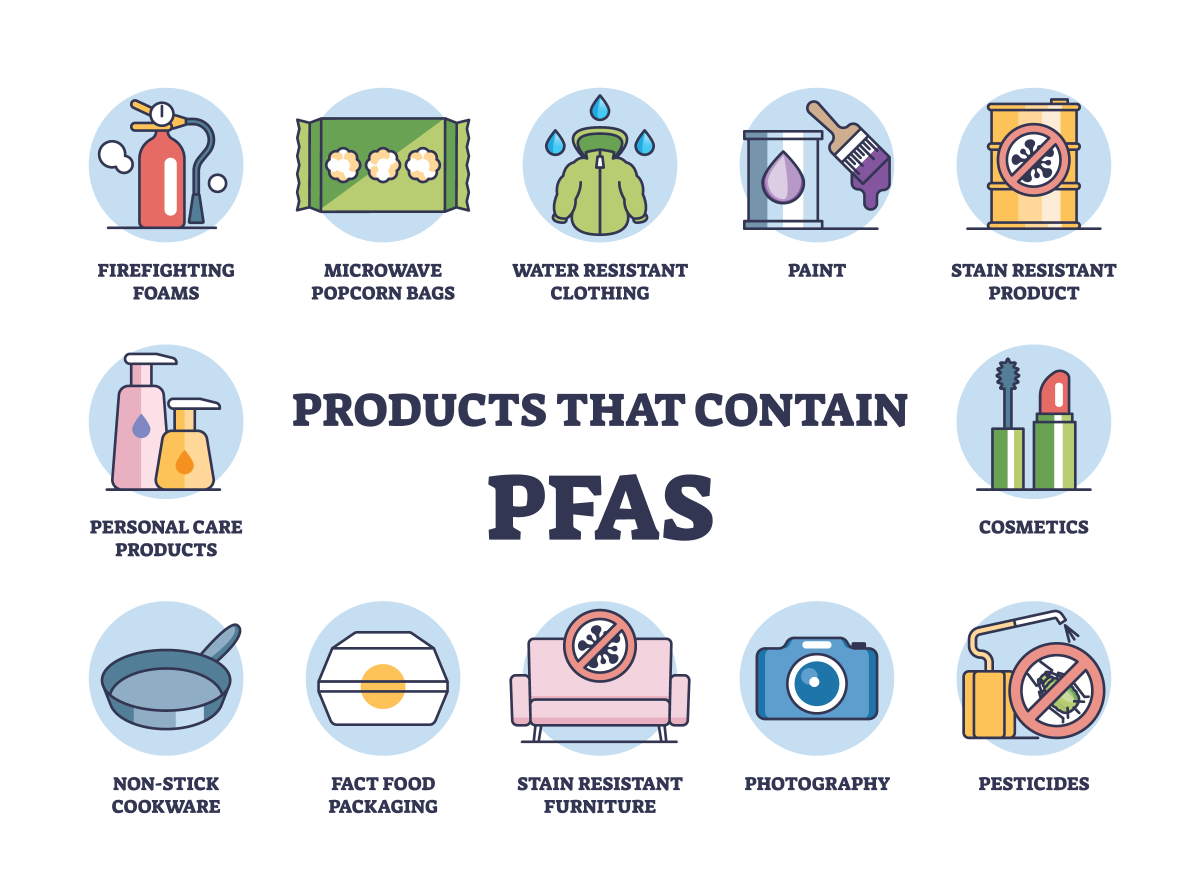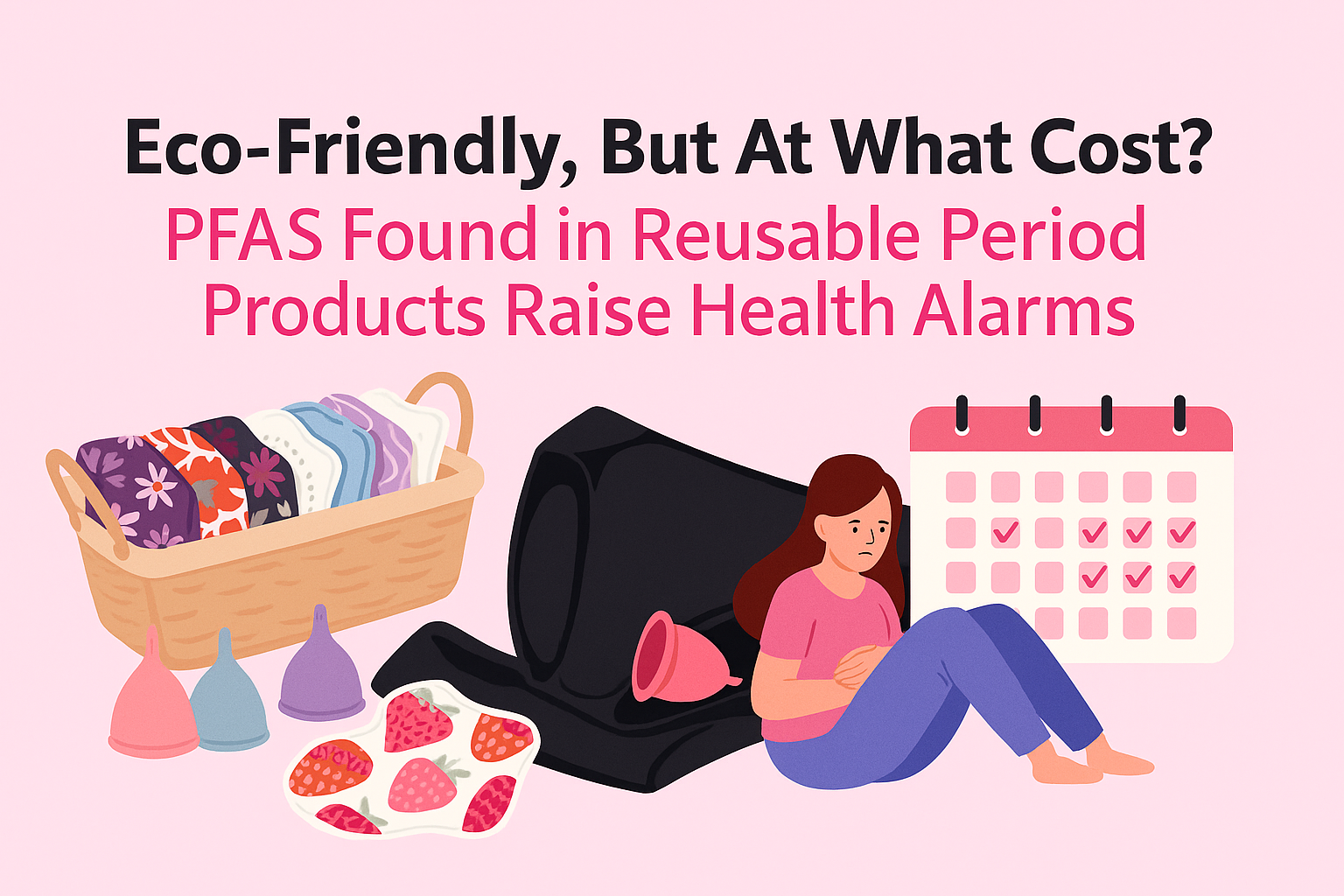Over the past decade, reusable period products like cloth pads, menstrual cups, and period underwear have been championed as eco-friendly, cost-effective, and empowering alternatives to disposables. But now, scientists are raising serious concerns: what if these sustainable choices come with hidden health risks?
A recent study published in Environmental Science & Technology Letters, conducted by researchers at the American Chemical Society (ACS), has found that some of these reusable products contain per- and polyfluoroalkyl substances (PFAS) — also known as “forever chemicals”. These synthetic compounds are linked to a range of health issues, including hormone disruption, immune system suppression, and potential reproductive harm.
What Are PFAS — and Why Are They in Period Products?

PFAS are widely used in consumer products for their resistance to stains, water, and grease. That same resistance, researchers believe, is what led to their inclusion in certain reusable period products. The study tested 59 items sourced from North America, South America, and Europe — including menstrual cups, reusable pads, and period underwear.
The results? One-third of the period underwear and a quarter of reusable pads contained PFAS levels high enough to suggest intentional use. In one product, PFAS levels were as high as 77,000 parts per million.
And while not all products tested contained high levels — 71% showed low or no detectable levels — the inconsistency is what worries researchers.
“It appears the use of PFAS is entirely unnecessary,” said Graham Peaslee, the study’s lead author.
Why It Matters for Public Health
PFAS are notoriously persistent in the environment and the human body — hence the nickname “forever chemicals.” They don’t break down easily and can build up over time. And while these chemicals may seem like a distant concern, skin contact — especially in sensitive areas — is a real route of exposure.
The potential for harm is especially concerning for products that are in direct, prolonged contact with skin and mucosal tissue, such as period underwear and menstrual cups.
And there’s a broader environmental impact too: washing these items can release PFAS into wastewater, affecting ecosystems and possibly re-entering the water supply.
What Can Consumers Do?
Unlike regulated medical devices, period products — especially reusable ones — exist in a murky regulatory space. Many users assume they’re safe because they’re marketed as natural, organic, or sustainable. But experts say it’s time for more scrutiny and transparency.
Here are a few ways to reduce risk:
-
Buy from transparent brands that clearly state their products are PFAS-free.
-
Avoid labels like “moisture-wicking” or “stain-resistant” unless third-party tested.
-
Pre-wash all cloth-based products before first use.
-
Skip fabric softeners or bleach, and boil menstrual cups between cycles.
-
Replace worn products — especially those that lose absorbency or develop stains.
A Wake-Up Call for Manufacturers and Policymakers
For now, this is a consumer choice issue — but it could quickly become a regulatory one. With global sales of reusable products rising rapidly, researchers and advocates are calling for stricter oversight and clearer labeling.
“This isn’t just about sustainability anymore,” the researchers warn. “It’s about safety.”
As consumers, we often make trade-offs in the name of going green. But when it comes to period products, no one should have to choose between eco-friendly and body-safe. Not when the science — and our health — demand better.








